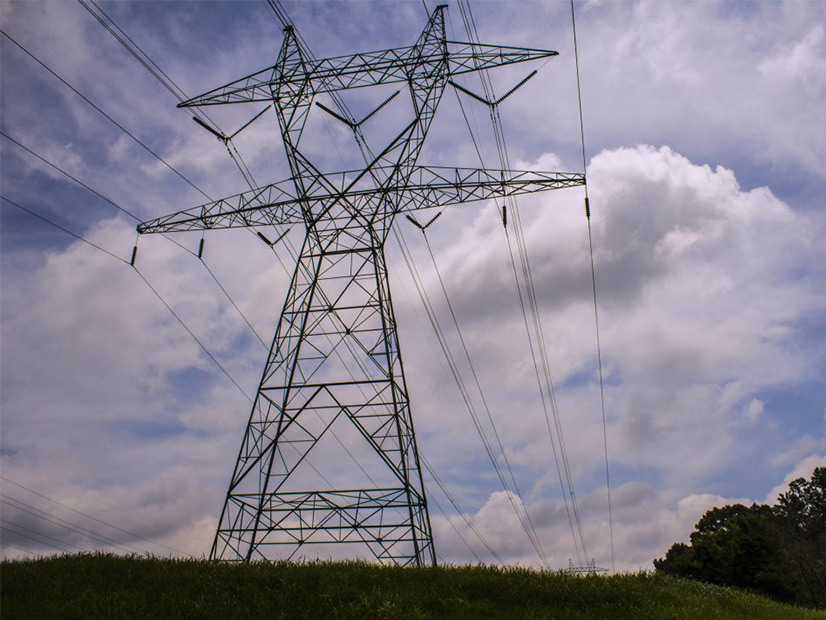A renewable energy watchdog is alleging that Entergy enjoys a particularly close relationship with the Mississippi Public Service Commission.
The Energy and Policy Institute (EPI) last week claimed that a batch of 2019 emails between the PSC and Entergy Mississippi are evidence that the commission worked with the utility to stall sizable transmission expansion that would enable more renewable generation to come online. EPI obtained the commission’s emails through the Mississippi Public Records Act.
The email records show that Entergy coordinated closely with commission staff and consultants over 2019 on MISO transmission-planning matters.
Entergy shared its opinions with the commission on the development of MISO’s 20-year planning futures, project cost allocation and the RTO’s now-paused plan to align the generator interconnection queue’s and annual transmission-planning cycle’s timelines.
Company staff and Mississippi regulators and consultants in late 2019 emailed each other to share concerns about the amount of renewable generation MISO projected under its three planning futures. They prepared talking points in preparation for a MISO public meeting on futures development, often attaching documents or setting up informal meetings that appeared to show information sharing.
In a Nov. 1, 2019, email to Entergy employees, PSC legal counsel David Carr said, “We want to hear what Entergy thinks about the proposed futures and the assumptions contained therein.” He said MISO’s estimated 70% increase in energy demand from electrification “seemingly comes out of thin air.” He told Entergy that the electrification scenario was a “nonstarter.”
Carr asked for Entergy’s stance on MISO’s estimates of renewable expansion and electrification growth, which would require new transmission. Carr said the commission doubted MISO’s projections and asked Entergy staff to “discuss how you folks plan on responding.”
Entergy staffer Vishwas Sankaran responded that the company had “similar concerns … especially around the amount of renewable penetration they are targeting with these futures.”
Carr last year requested that MISO pause futures development, questioning its electrification predictions in light of the COVID-19 pandemic. Other MISO members at the time said that the renewable predictions were too conservative. (See COVID-19, Electrification Stir MISO Futures Debate.)
Also in late 2019, PSC Senior Attorney Sam Mabry circulated Entergy discussion points ahead of a meeting between the company and MISO on possible cost allocation.
The entities also traded emails with attachments containing talking points on the Organization of MISO States’ long-range transmission planning principles, which pushed the RTO to embark on a new long-range transmission plan. The Mississippi PSC, the Louisiana Public Service Commission and the New Orleans City Council ultimately opposed the principles, saying MISO didn’t need to change its long-term planning approach last used in 2011.
Emails also appear to show that the Mississippi PSC was coordinating with Arkansas regulators to oppose the Missouri Public Service Commission’s call for interregional transmission planning between MISO and SPP.
Entergy said the close collaboration is above board and said it shouldn’t keep an arms-length distance from the regulators that approve transmission and generation projects.
“As do many, if not all, regulated public utilities in MISO, we work together with our retail regulators, as part of the public MISO stakeholder process, to advocate for MISO policies and MISO decisions regarding transmission planning that benefit our customers and ensure that they realize the benefits of MISO participation,” Entergy Mississippi said in a statement to RTO Insider. “Ultimately, it is MISO that independently determines the transmission projects needed to cost effectively deliver electricity and comply with existing regulatory and reliability standards.”
Entergy did not include a position statement on MISO’s transmission planning process. The Mississippi PSC did not respond to a request for comment on the collaboration.
MISO executives have said billions of dollars in transmission construction is imperative to maintain the footprint’s reliability and accommodate the shifting resource mix. (See MISO Execs Defend Need for Long-range Tx.)
In stakeholder meetings, Mississippi PSC consultant Bill Booth has asked that the grid operator pause its long-range transmission planning effort until it develops a strategic plan with clearer goals.
Booth has also expressed concern that the RTO intends to make all MISO Midwest wind generation deliverable to its South region and, conversely, all the latter’s solar generation deliverable to the Midwest through expensive transmission projects.
However, the February winter storm and subsequent rolling blackouts in MISO South are renewing calls among the stakeholder community for long-term transmission planning. (See “Stakeholders Invoke Southern Blackouts,” MISO Reveals Contentious Long-range Tx Project Map.)
In a position reversal, New Orleans Mayor LaToya Cantrell expressed support for MISO’s long-term transmission plan in a March 25 letter to the grid operator. Cantrell also asked that it consider the effects of climate change in transmission planning.
“Given the lengthy process of transmission planning and development, and the looming threats of additional extreme weather, I am asking that you move as swiftly as possible to incorporate the climate and resilience goals of New Orleans in MISO’s transmission planning processes,” she wrote. “We are relying on MISO to plan the grid infrastructure that the city of New Orleans can rely on now and for the century to come. We stand ready to partner with you to ensure that this occurs.”





